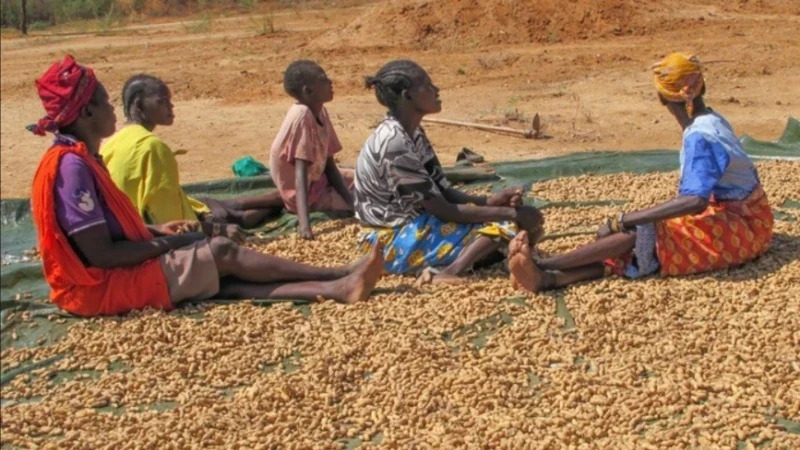Loans for poor countries
The World Bank (WB) has announced that it has raised close to 24 billion USD for providing loans and grants to some of the world's poorest nations, which it can leverage to generate a record 100 billion USD in total spending power. This joint action is expected to support the 78 countries that 'need it most'.
 |
| (Photo: THX/VNA) |
Countries will contribute 23.7 billion USD directly to the International Development Association (IDA) — the part of the World Bank that helps the world's low-income countries.
After using financial leverage, the total funding amount could increase fourfold to 100 billion USD. IDA mainly supports the world's 78 countries that 'need it most', focusing on projects ranging from overcoming the consequences of the COVID-19 pandemic on the economy to adapting to climate change.
This is the largest source of concessional financing for these countries, with about 75% of total IDA funding going to countries in Africa. According to the United Nations Development Programme (UNDP), more than 1 billion people in the world live in extreme poverty, more than half of whom are children. Around 83.2% of the world's poorest people live in sub-Saharan Africa and South Asia.
Replenishments to the IDA are made every three years, a sign of strong confidence in the World Bank's ability to effectively support development goals. This year, the United States pledged a record 4 billion USD to the IDA, while other countries such as Japan, the United Kingdom, Germany, France, Norway and Spain also significantly increased their financial contributions.
The new contribution from the US is about 14.3% higher than the 3.5 billion USD commitment Washington made in the previous IDA recapitalisation round in December 2021. Spain increased its contribution by around 37%, or 423 million USD. Denmark also announced an increase of about 492 million USD, up 40% from its previous commitment.
These grants are crucial in helping poor countries reduce their debt burdens, respond to climate-related disasters and support post-conflict reconstruction efforts. The World Bank said that developing countries globally spent a record 1.4 trillion USD on debt repayments last year as interest rates hit a two-decade high.
In its latest report on international debt, the World Bank stated that the poorest countries have spent more than 96 billion USD to repay their debts, of which interest repayments alone amounted to nearly 35 billion USD. Having to repay large amounts of debt has forced many countries to seek funding from multilateral organisations such as the World Bank, thereby creating financial pressure on these organisations.
Meanwhile, increasing support commitments for poor countries is a great effort by donor countries. In fact, the campaign to raise more than 100 billion USD comes at a time when financial resources are tight because many rich countries have had to cut spending due to slower-than-expected recovery from the COVID-19 pandemic.
World Bank President Ajay Banga said the funding will have a huge impact on the lives of poor people. According to Banga, every dollar raised by IDA can be multiplied by four, and this is the best deal in the development sector.
In addition to providing loans and grants to poor countries, the World Bank has announced an initiative to cooperate with these governments to promote investment in education through a debt swap mechanism. Under the agreement, the Government of Côte d’Ivoire will buy back a portion of its commercial debt worth 423 million USD. This debt has a high interest rate and must be paid back in the next five years.
To buy back the old debt, the government will borrow a new amount of money from financial institutions at a lower interest rate and with a longer maturity. To help Côte d’Ivoire borrow on these favourable terms, the World Bank will provide a partial guarantee for the loan. This move could save Côte d’Ivoire at least €60 million, which will be invested into upgrading the country’s education system.
This is the first time the World Bank has entered into a debt-for-development swap, marking a new step forward in its support for developing countries. However, to ensure the effectiveness and sustainability of these transactions, close coordination is needed between stakeholders, including governments, international financial institutions, and development partners.
Financial commitments from rich countries to poor countries aim to create a more prosperous and equitable world. At the launch of Denmark’s contribution to the International Development Association, Danish Prime Minister Mette Frederiksen called on the world to join hands to help the poor and vulnerable.
NDO





READER COMMENTS